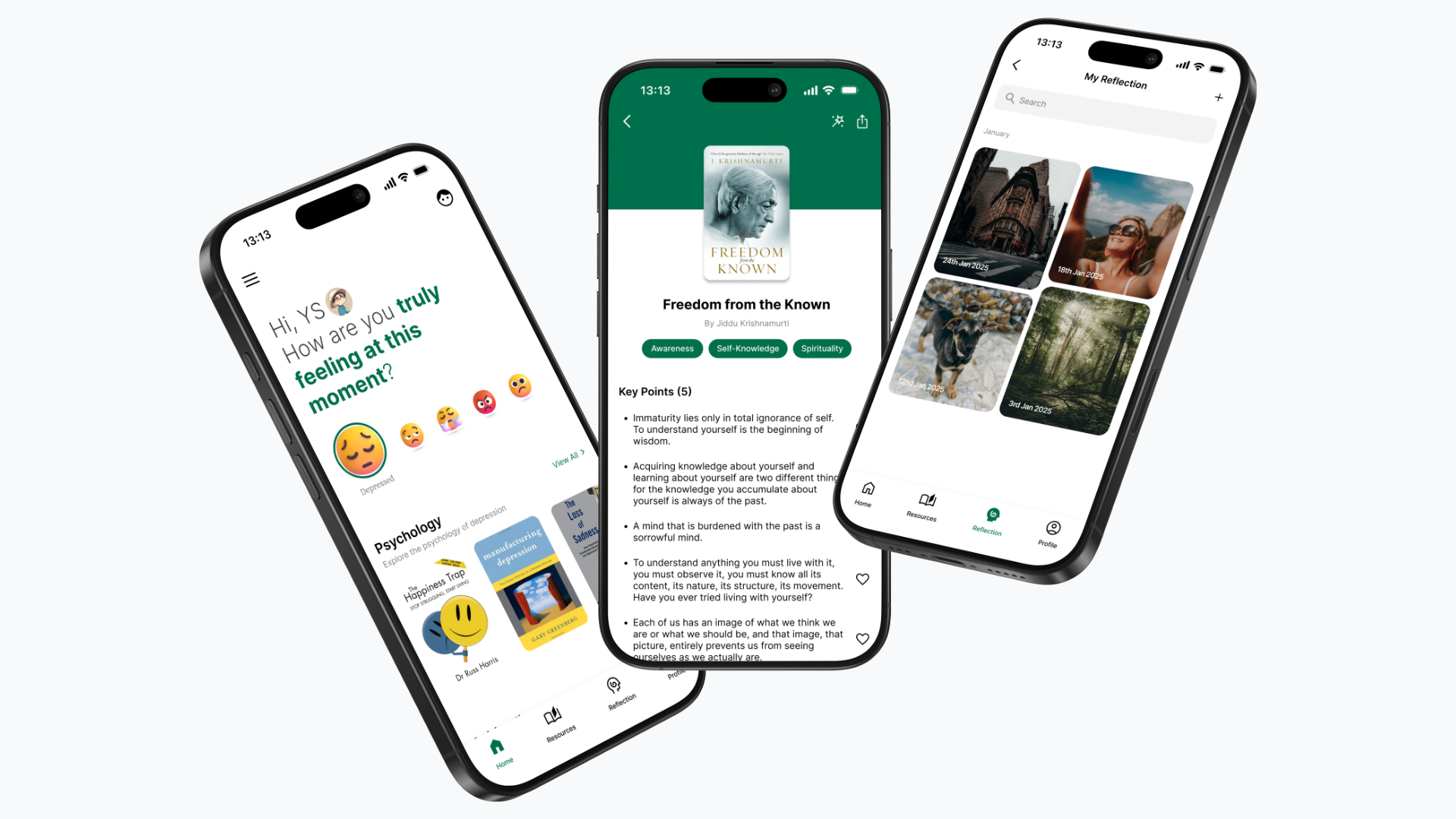
Mentally is a concept for a mobile app I’ve been exploring, designed to promote mental wellness by equipping users with intellectual insights. It focuses on providing insights from various sources regarding emotions, hoping to help users acknowledge how their emotions work through intellectual understanding. My goal is to help users develop a more proactive and informed approach to their own mental well-being.
Figma
2 Weeks
Mobile App
UX Designer
19-60 Years Old
Problem Statement
Beyond Passive Wellness
Currently, I observe many wellness apps tend to focus on activities like physical exercises (yoga, fitness programs), improving sleep quality, or engaging with religious narratives. These often lead to users passively absorbing information. However, I believe that general mental disturbances can be avoided by gaining insights into how the mind works. Without knowledge of these mechanisms, the wellness achieved through various activities might only be momentary. Mentally aims to fill this gap by encouraging active self-acknowledgment, moving beyond temporary relief.

Design Process Overview
Crafting a Path to Proactive Wellness
Empathize
I analyzed existing wellness apps, noting their passive approaches to mental insight.
Define
I articulated the need for a platform empowering users to proactively understand emotional mechanisms.
Ideate
I explored ways to deliver insights and design activities for active self-acknowledgment.
Prototype
I aimed to refine concepts into interactive prototypes, focusing on clear insight presentation and intuitive exploration.
Testing
I conducted testing to ensure the app effectively helps users acknowledge their emotions.
Emphatize & Define
Uncovering the Mind's Working Principles
Building on the idea that mental disturbances link to ignorance of mind mechanisms, I examined several prominent wellness apps. A concrete problem became apparent: the current landscape seems to lean heavily towards passive wellness, often providing positivity through a one-sided perspective. I observed a significant gap where apps offer limited opportunities for active exploration and deeper understanding of one’s own emotional workings. This is the unmet need Mentally aims to establish and address.
HeadSpace
Offers guided meditations and mindfulness, focusing on stress management via passive listening and practice.
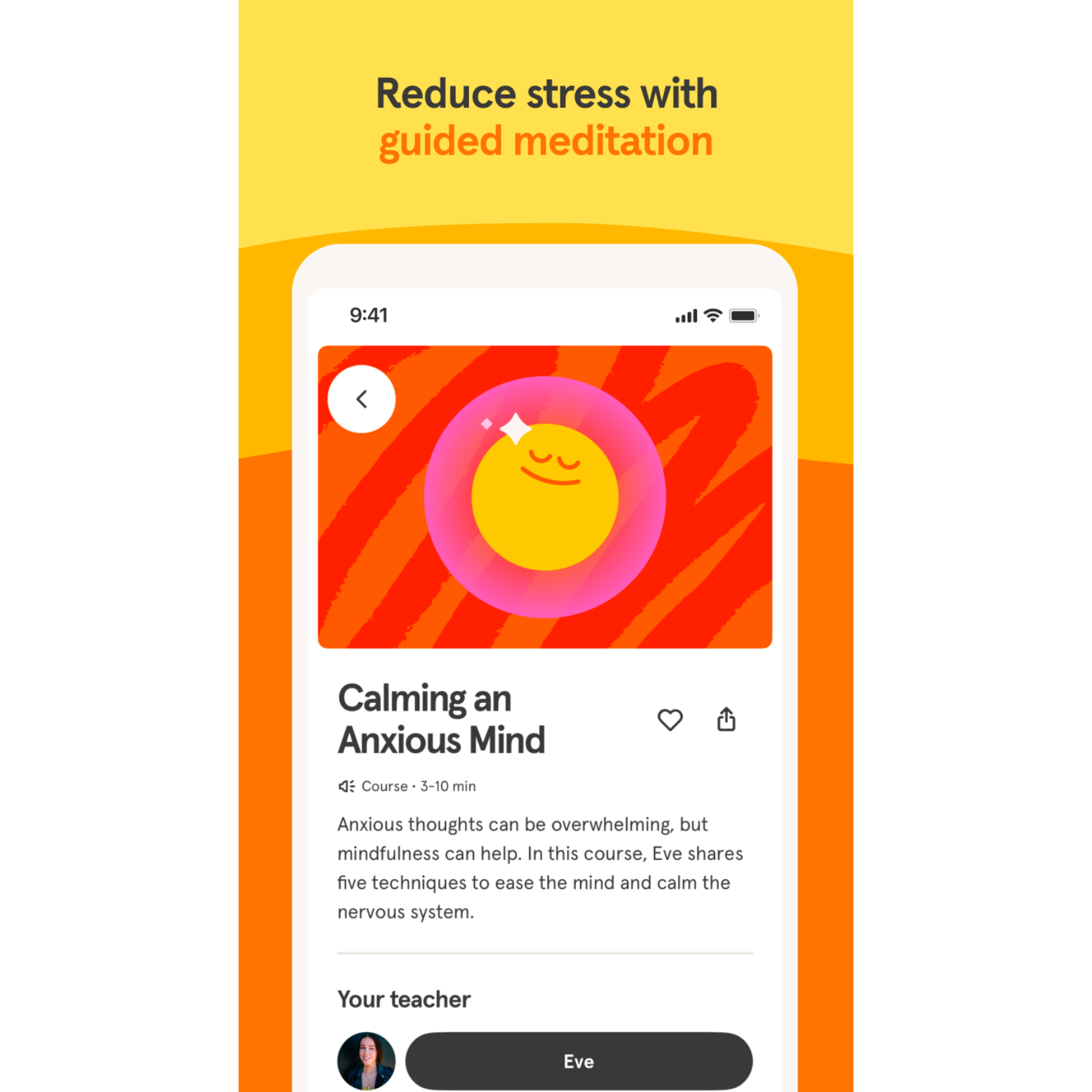
Calm
Provides guided meditations, sleep stories, and breathing exercises, emphasizing relaxation through immersive audio experiences.
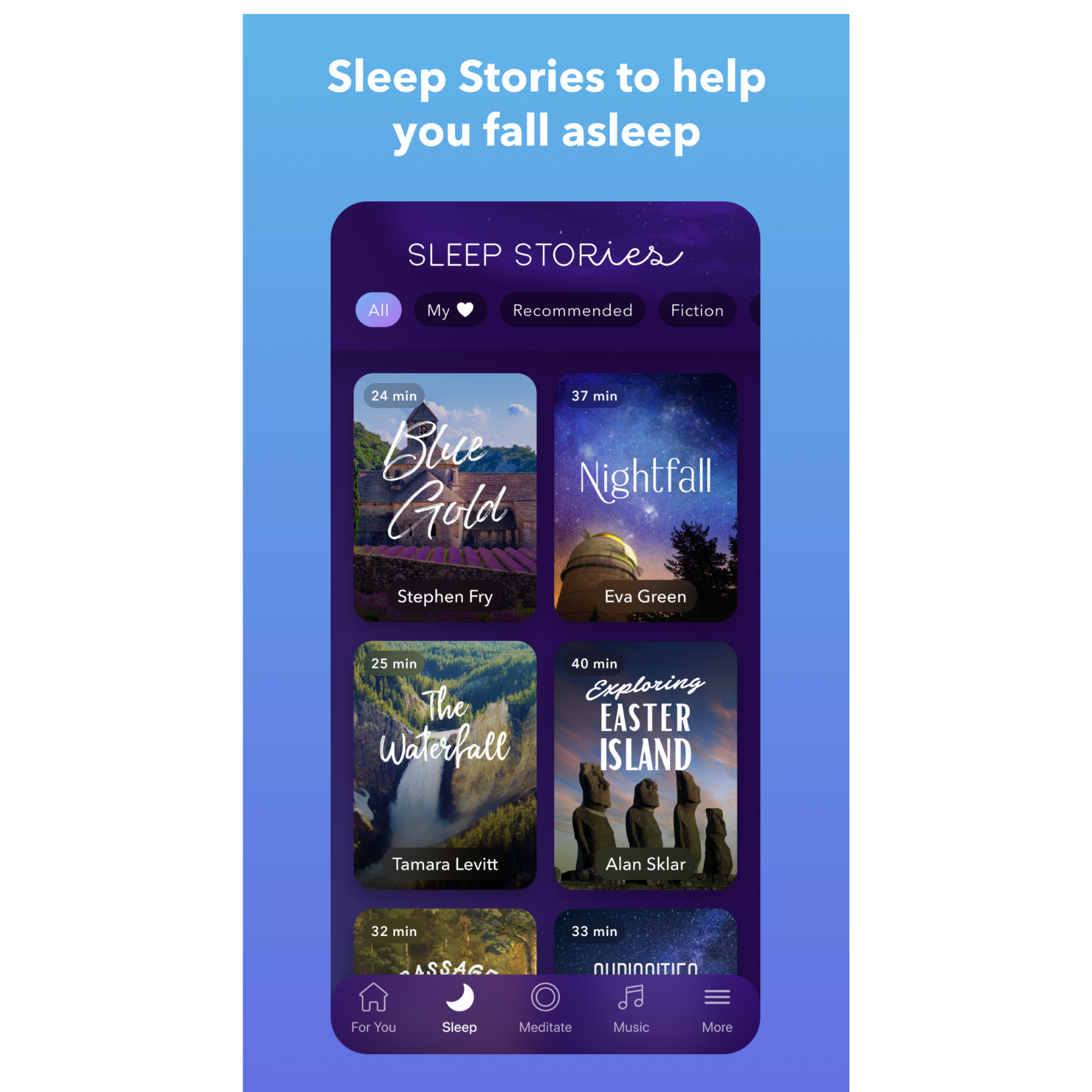
Gratitude
Focuses on positive reinforcement through journaling, primarily on positive experiences rather than deeper psychological understanding.
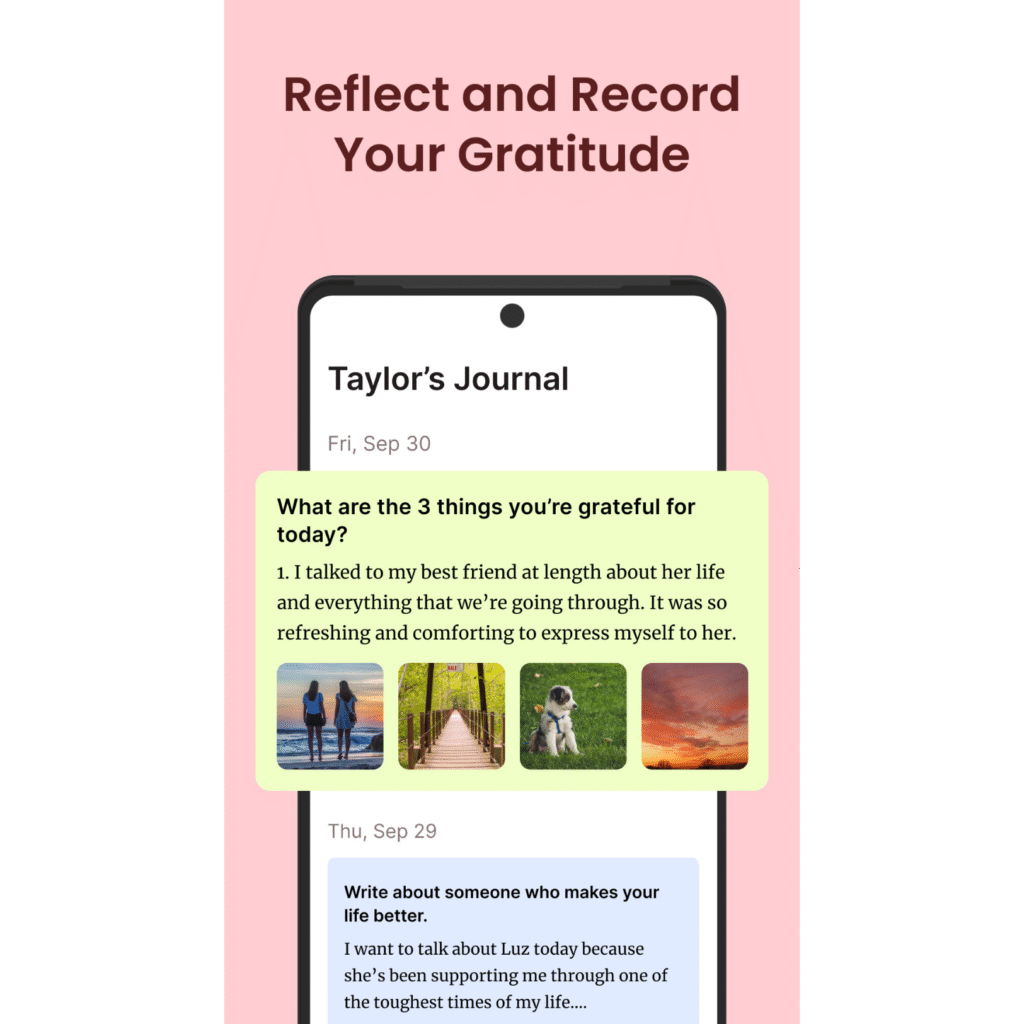
MindDoc
Functions as a mental health companion for mood tracking, symptom monitoring and patterns detection, rather than direct intellectual insights.
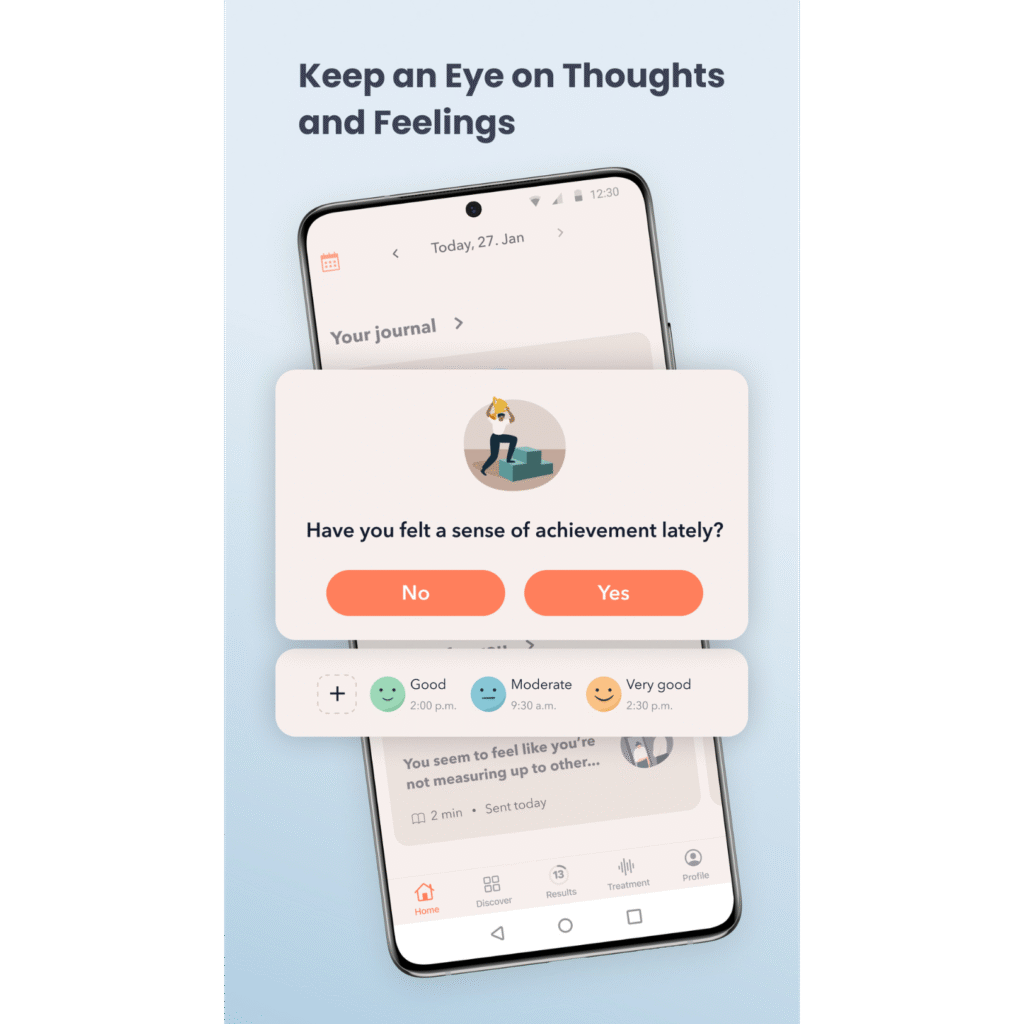
Which leads to a question...
How might we design a mobile app that actively guides users to understand their emotional mechanisms and fosters proactive self-acknowledgment, moving beyond the passive absorption of wellness information?
Ideate
Charting the Course for Self-Exploration
In the ideation phase, I focused on translating Mentally’s core intention of proactive acknowledgment into essential features. I pinpointed key interactions such as receiving instant summaries of insights, and mental exercises derived from books, and utilizing a video-based reflection journal. My sitemap and wireframes, though representing an initial concept rather than an extensive build, were based on visualizing these core components, showing how users might access and engage with the app’s unique approach to mental wellness.
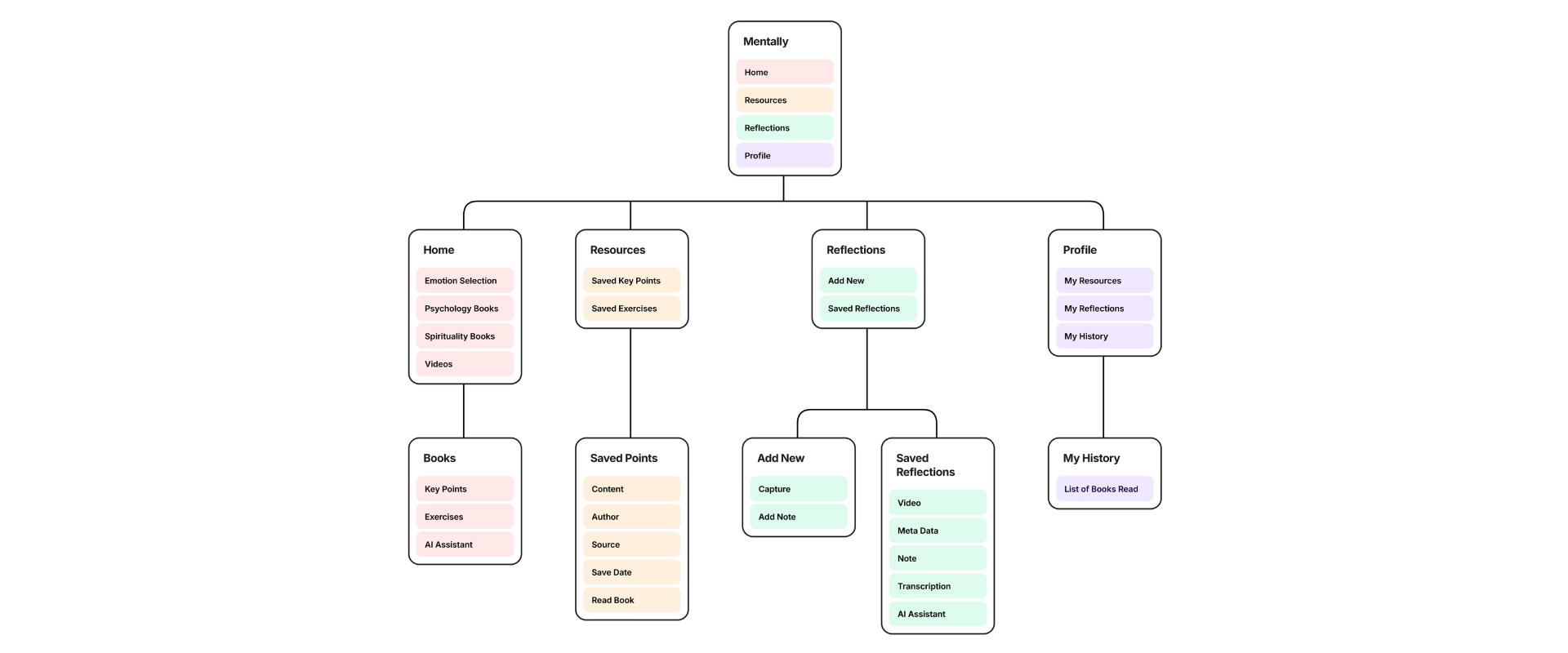
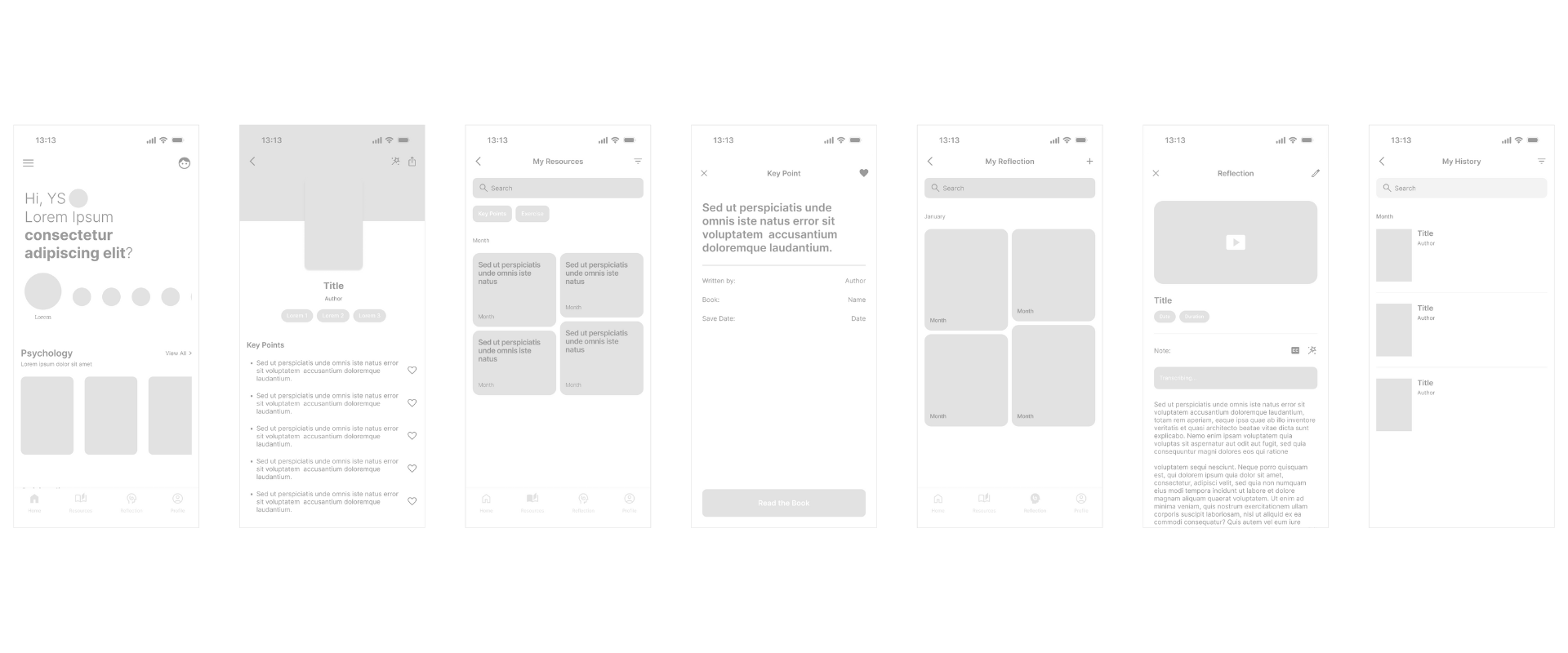
App Showcase
Mentally in Action
The interactive prototype for Mentally provides a tangible feel for the app’s intended user experience. It showcases the visual design, key interactions, and overall flow across the main sections, allowing exploration of how users might navigate and engage with the content.
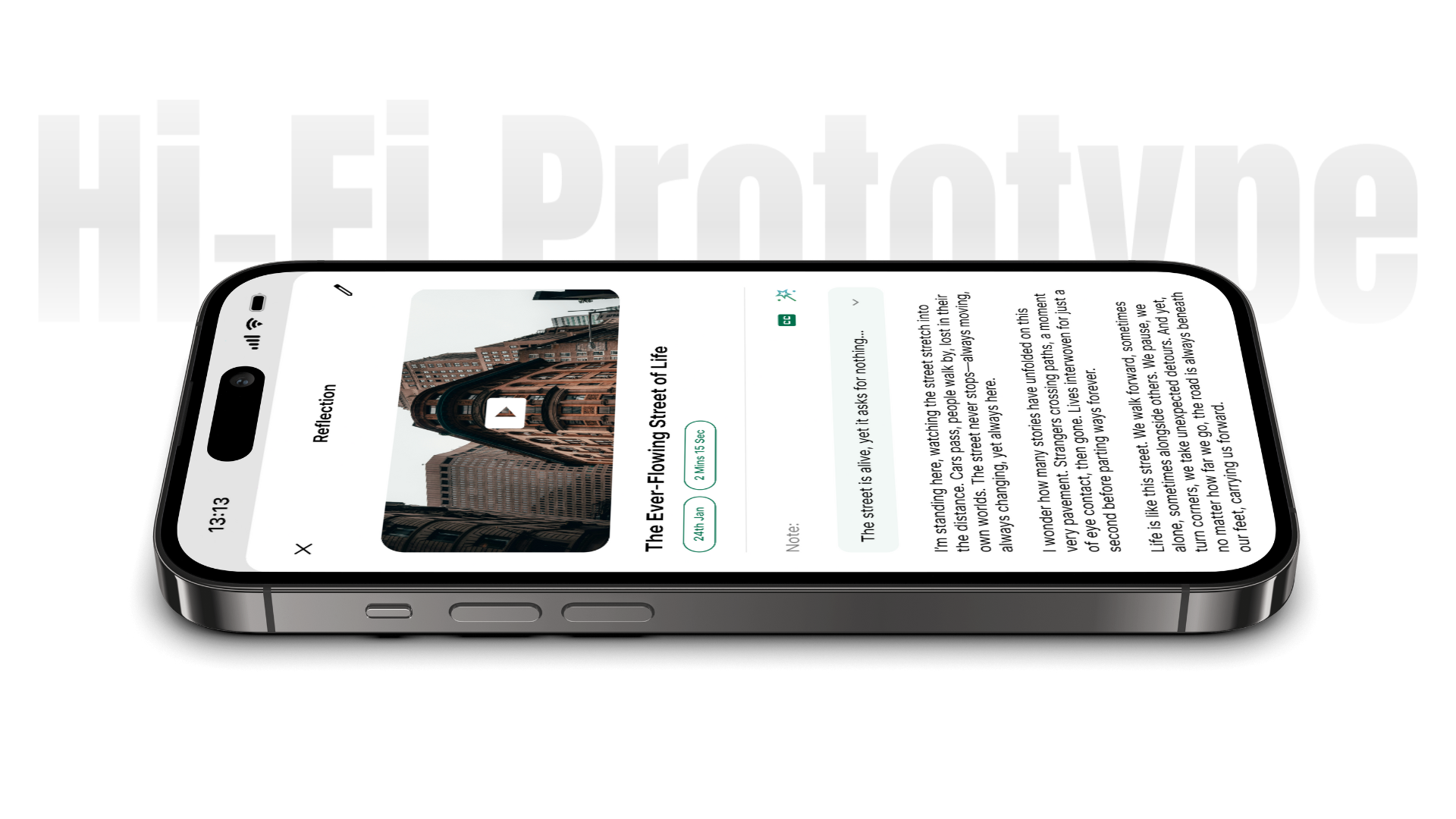
User Testing
Room for Growth
“The homepage shows so many emotions, which is great, but sometimes I’m not sure which one to pick if I’m feeling a mix of things or just generally ‘off.’ It would be helpful to have a little guidance or a ‘start here’ option if I’m feeling unsure.”
“On the book summary page, the ‘AI Guide’ sounds really interesting, but I wasn’t immediately sure what it would do or how to best ask it questions. Maybe a quick tooltip or a slightly more descriptive label could help.”
“I love that I can save insights and exercises to my Resources. I can imagine if I save a lot over time, it might get hard to find specific things. A way to search or categorize my saved resources would be really useful down the line.”